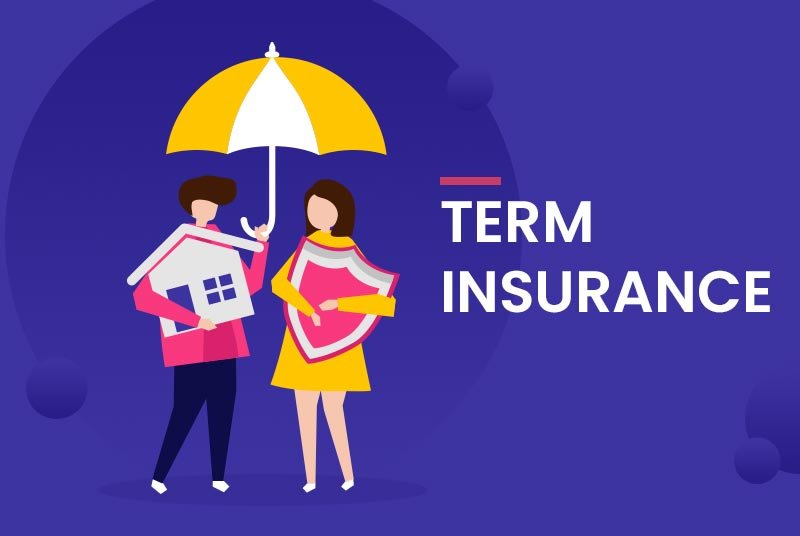Our family, especially our parents, encourages us to save money when we first start earning a living. As time passes, friends and coworkers share their insights on how to approach financial planning. The significance of life insurance is undoubtedly discussed if you have ever participated in such a discussion. More precisely, people advising you would encourage you to purchase a term insurance plan, particularly if you have dependents that depend on you financially. Unfortunately, the discussion frequently becomes limited to how simple it is to make purchases online and how the Income Tax Act’s Section 80C offers tax advantages.
All of it is true, but you should know other crucial details about term insurance. This can leave you wondering why term insurance is such a huge deal. To better help you comprehend these things, we’ll look at some fundamental questions about this type of insurance.
Let’s start right from the basics:
Term insurance: What is it?
Term insurance offers you financial protection against an unforeseen demise for a predetermined time. It is the purest and most basic type of life insurance. If you are insured, the predetermined death benefit will be paid to your designated beneficiaries. Term insurance’s primary goal is to financially protect your loved ones from any potential income losses resulting from your passing.
Who requires term life insurance?
Several factors influence the answer to this question. As you already know, term insurance is critical for providing financial security to your loved ones in the event of your death, which may result in a loss of income. If you stop to think about it, losing your career could also have an impact on your family’s plans for things like marriage or your children’s higher education.
In summary, whether you need term insurance is determined by your family’s financial goals, financial dependents, and obligations.
When should I purchase term insurance?
The answer to this is that you should purchase term insurance plans as soon as you have dependents, family goals, or liabilities. So take out a term plan as quickly as possible if you are planning for a family, have liabilities, or even if you think you need it in the future.
For instance, for an annual premium of about Rs 7,400, a 30-year-old non-smoker can purchase term insurance with a cover of Rs 1 crore that lasts till the age of 60. On the other hand, a 45-year-old non-smoker would need to pay roughly Rs 14,700 for the same coverage.
How can I decide what’s right for me?
You need to be aware that this could have several levels and that not all of them will apply to you to comprehend the answer to this question. Financial advisors advise acquiring a life insurance policy that, for starters, covers up to 20 times your yearly income if you are under 45. The coverage can be close to 15 times your annual income if you are over 45.
The frequency of premium payments follows. These days, you can pay the premiums for term insurance on a monthly, quarterly, or annual basis. Additionally, you can instruct your bank consistently to take funds from your account to pay premiums periodically. Plans that let you pay a single premium for your insurance are also offered.
What are riders for term insurance?
A term insurance plan can be enhanced with riders. You must buy the riders in addition to the term insurance plan because these aren’t actually a part of the plan. To better comprehend riders, let’s use an illustration. For instance, if you choose a critical illness rider, your insurer will pay out if you are found to have one of the critical illnesses listed in the rider.
There are additional riders as well, such as the waiver of premium rider, which exempts you from paying future premiums in the event of an illness or accident that the insurer specifies. In addition, extra payouts are offered to the nominees if the insured passes away in an accident, thanks to accidental death benefit riders.
How do I go about purchasing term insurance?
It’s time to finally purchase term insurance once you understand what it covers and how it fits into your family’s overall financial strategy. For those looking for localized support, seeking financial advice Ottawa can help ensure your insurance plan aligns with both personal and regional financial goals. The problem then arises- Which is better, online or offline? It is important to remember that offline or online has no impact on the product.
Even then, the price you pay is the most obvious distinction between an online and offline term plan. Although this may differ from business to business, it is typical for prominent insurance providers to offer a discount of up to 5% on the rate if you purchase the policy online. Additionally, you can use an online term insurance plan calculator to check, compute and compare the term insurance policy premium quotes. Also, check your tax benefits under Section 80C, as mentioned. You can get deductions up to Rs. 1,50,000 on your term insurance premium payments under this section.

